![[New] Monetizing on YouTube Can You Earn Monthly?](https://thmb.techidaily.com/a691a544cb7cde4aeceab56e4cf68f393a99f1feb2da71ac3ca94b7300f4d4b3.jpg)
"[New] Monetizing on YouTube Can You Earn Monthly?"

Monetizing on YouTube: Can You Earn Monthly?
Any YouTuber can earn passive income monthly if they’ve reached the YouTube Partner Programme (YPP) requirement? Yes, the YouTube Partner Program gives creators access to start generating revenue with their channel once they reach a minimum of 1,000 YouTube subscribers and 4,000 watch ours in the last twelve months.
For anyone looking to start earning passive income via YouTube, but have the question, “Does YouTube pay monthly?” The answer is YES YouTube pays monthly. However, there are other things you must know if you want to start making money from YouTube. So, in this article, we will discuss all you need to know about how often YouTube pays and other YouTube monetization tips.
Part 1: How Often Does YouTube Pay
As mentioned earlier, YouTube pays monthly. It’s usually within the first 10-14 days of a new month (10th day or 14th day of a new month). However, to be able to receive your funds, you must reach the minimum threshold of your local currency as required by YouTube. For example, $100 for content creators within the United States.
Also, you must comply with the YouTube monetization policies and not be suspended by YouTube in the past month.
Part 2: How Does YouTube Pay – Typical Methods Used
Research shows that YouTube’s average pay rate is within the range of $0.01 to $0.03 per ad view. This means for every 1,000 ad views, a YouTuber could earn $18, while for every 1,000 video views, you could earn $3 to $5. You might ask “Does YouTube pay creators per view?’ Well, the answer is NO, YouTube doesn’t pay creators per view. They pay per monetized view.
However, to get started making money per monetized views, you need to join the YouTube Partnership Program. As mentioned earlier, YouTube Partner Program (YPP) gives creators access to start generating revenue with their channel once they reach a minimum of 1,000 YouTube subscribers and 4,000 watch ours in the last twelve months. It gives creators access to different monetization features like advertising, merchandise sales, fan funding, and lots more.
● Earn Money Through Ad Views
Advertisers pay for YouTube ads based on clicks and impressions, and YouTube monetizes creators’ videos by displaying these ads in different advertising formats like pre-roll, display, etc. So, once these ads display in your video and your subscribers click on them, you get paid.
As mentioned earlier, YouTube’s average pay rate is within the range of $0.01 to $0.03 per ad view, while for every 1,000 video views, you could earn $3 to $5. But, out of the money earned, YouTube pays creators 55% and keeps the remaining 45%.
With Ads, you can earn money based on every 1,000 views get from your video and the number of clicks you get on ads placed on your video. However, for ads to be displayed on your videos, you must adhere to YouTube’s creator guidelines, as videos that contain foul language, violence, adult content, and other unwanted subjects won’t have ads displayed on them.
The image below displays the requirement to start displaying ads on your YouTube videos;

Part 3: More Opportunities To Earn More Money From YouTube
Besides ads, there are other ways to monetize your YouTube channel. You could also earn through a corporate sponsorship from brands, selling your products, etc. Keep reading to find out more ways to earn money from YouTube.
1. Affiliate Marketing

You might have come across YouTube videos where the creators talk about their favorite brands and add links to the platform for the brand. Well, that’s a form of affiliate marketing.
YouTube Affiliate marketing involves a creator reviewing a product like makeup, digital cameras, mobile phone, and lots more including services in their video. Plus, the links to the recommended product or services are usually added to the description of the video. So, once a viewer clicks on the link and purchases the product or service, the YouTuber gets a certain percentage of the money.
If you get an affiliate link to a product on a platform, you can create a video relating to that product, then in your video description, you’ll add the affiliate link there. So, when anyone purchases the product using your affiliate link, you’ll get your percentage off the price they paid. On average, companies will be willing to pay within 5% to 50% of the purchase price.
2. Brand Sponsorship

The fact YouTube is the most used video-playing platform makes it a great spot for businesses and organizations to promote their product or services. So, once you grow your YouTube subscribers to a certain level, you’ll receive emails from companies and brands to partner with you to sponsor their products or service. Honestly, there are lots of brands who will be happy to pay you to promote their products/services,
Research shows that sponsorship deals are usually within the range of $200 to over $10k. It all depends on how the brand/organization is willing to cooperate. It could be pre-roll, post-roll, etc.
Also, your YouTube channel data statistics such as total subscribers, average video impressions in the past months, likes, comments, and more are other factors that will determine how much brands will offer you to seal a sponsorship deal.
3. Selling Own Products or Services

Selling your products or services is another great way to monetize your YouTube channel. You could sell your merch, gaming tools, and other things related to the theme of the content you create for your loyal fans to purchase.
If you don’t have a product, you could charge your viewers for exclusive content, sell online courses for dropshipping, sell cryptocurrency trading e-books, etc. The only thing is you need to have a large following to earn well from this YouTube monetization option.
 SwifDoo PDF Perpetual (2-PC) Free upgrade. No monthly fees ever.
SwifDoo PDF Perpetual (2-PC) Free upgrade. No monthly fees ever.
Part 4: More FAQs About How Much YouTubers Make
At this point, you should already have a brief idea of how YouTube monetization works. However, if you still want to discover more information, keep reading to check out more FAQs on how much YouTubers make.
1. Who is The Richest YouTuber?
The richest YouTuber as of 2021 is Mr. Beast. He has made up to $54 million in revenue from his YouTube channel.
2. Do YouTubers Get Paid Well?
The rate at which YouTubers get paid depends on certain factors like the audience they aim for, how frequently they publish the nature of their material, and lots more. As we mentioned in the article, the average pay rate on YouTube is within the range of $0.01 to $0.03 per ad view, while for every 1,000 video views, you could earn $3 to $5. Also, research shows that the highest-paying YouTube category is the “Make Money Online” category with an average CPM of $13.52.
3. How much does a YouTuber make a year?
Honestly, there’s no specific answer to how much a YouTuber makes a year. However, research shows that an average YouTuber makes up to $60,000 annually.
Final Words
As you can see, there are different ways you could monetize your YouTube channel. Be it via affiliate marketing, ads, selling products, or more. Regardless of how you want to monetize your YouTube channel, the article has covered the basics you must know to make the process easier.
Free Download For Win 7 or later(64-bit)
Free Download For macOS 10.14 or later
Part 1: How Often Does YouTube Pay
As mentioned earlier, YouTube pays monthly. It’s usually within the first 10-14 days of a new month (10th day or 14th day of a new month). However, to be able to receive your funds, you must reach the minimum threshold of your local currency as required by YouTube. For example, $100 for content creators within the United States.
Also, you must comply with the YouTube monetization policies and not be suspended by YouTube in the past month.
Part 2: How Does YouTube Pay – Typical Methods Used
Research shows that YouTube’s average pay rate is within the range of $0.01 to $0.03 per ad view. This means for every 1,000 ad views, a YouTuber could earn $18, while for every 1,000 video views, you could earn $3 to $5. You might ask “Does YouTube pay creators per view?’ Well, the answer is NO, YouTube doesn’t pay creators per view. They pay per monetized view.
However, to get started making money per monetized views, you need to join the YouTube Partnership Program. As mentioned earlier, YouTube Partner Program (YPP) gives creators access to start generating revenue with their channel once they reach a minimum of 1,000 YouTube subscribers and 4,000 watch ours in the last twelve months. It gives creators access to different monetization features like advertising, merchandise sales, fan funding, and lots more.
● Earn Money Through Ad Views
Advertisers pay for YouTube ads based on clicks and impressions, and YouTube monetizes creators’ videos by displaying these ads in different advertising formats like pre-roll, display, etc. So, once these ads display in your video and your subscribers click on them, you get paid.
As mentioned earlier, YouTube’s average pay rate is within the range of $0.01 to $0.03 per ad view, while for every 1,000 video views, you could earn $3 to $5. But, out of the money earned, YouTube pays creators 55% and keeps the remaining 45%.
With Ads, you can earn money based on every 1,000 views get from your video and the number of clicks you get on ads placed on your video. However, for ads to be displayed on your videos, you must adhere to YouTube’s creator guidelines, as videos that contain foul language, violence, adult content, and other unwanted subjects won’t have ads displayed on them.
The image below displays the requirement to start displaying ads on your YouTube videos;

Part 3: More Opportunities To Earn More Money From YouTube
Besides ads, there are other ways to monetize your YouTube channel. You could also earn through a corporate sponsorship from brands, selling your products, etc. Keep reading to find out more ways to earn money from YouTube.
1. Affiliate Marketing

You might have come across YouTube videos where the creators talk about their favorite brands and add links to the platform for the brand. Well, that’s a form of affiliate marketing.
YouTube Affiliate marketing involves a creator reviewing a product like makeup, digital cameras, mobile phone, and lots more including services in their video. Plus, the links to the recommended product or services are usually added to the description of the video. So, once a viewer clicks on the link and purchases the product or service, the YouTuber gets a certain percentage of the money.
If you get an affiliate link to a product on a platform, you can create a video relating to that product, then in your video description, you’ll add the affiliate link there. So, when anyone purchases the product using your affiliate link, you’ll get your percentage off the price they paid. On average, companies will be willing to pay within 5% to 50% of the purchase price.
2. Brand Sponsorship

The fact YouTube is the most used video-playing platform makes it a great spot for businesses and organizations to promote their product or services. So, once you grow your YouTube subscribers to a certain level, you’ll receive emails from companies and brands to partner with you to sponsor their products or service. Honestly, there are lots of brands who will be happy to pay you to promote their products/services,
Research shows that sponsorship deals are usually within the range of $200 to over $10k. It all depends on how the brand/organization is willing to cooperate. It could be pre-roll, post-roll, etc.
Also, your YouTube channel data statistics such as total subscribers, average video impressions in the past months, likes, comments, and more are other factors that will determine how much brands will offer you to seal a sponsorship deal.
3. Selling Own Products or Services

Selling your products or services is another great way to monetize your YouTube channel. You could sell your merch, gaming tools, and other things related to the theme of the content you create for your loyal fans to purchase.
If you don’t have a product, you could charge your viewers for exclusive content, sell online courses for dropshipping, sell cryptocurrency trading e-books, etc. The only thing is you need to have a large following to earn well from this YouTube monetization option.
Part 4: More FAQs About How Much YouTubers Make
At this point, you should already have a brief idea of how YouTube monetization works. However, if you still want to discover more information, keep reading to check out more FAQs on how much YouTubers make.
1. Who is The Richest YouTuber?
The richest YouTuber as of 2021 is Mr. Beast. He has made up to $54 million in revenue from his YouTube channel.
2. Do YouTubers Get Paid Well?
The rate at which YouTubers get paid depends on certain factors like the audience they aim for, how frequently they publish the nature of their material, and lots more. As we mentioned in the article, the average pay rate on YouTube is within the range of $0.01 to $0.03 per ad view, while for every 1,000 video views, you could earn $3 to $5. Also, research shows that the highest-paying YouTube category is the “Make Money Online” category with an average CPM of $13.52.
3. How much does a YouTuber make a year?
Honestly, there’s no specific answer to how much a YouTuber makes a year. However, research shows that an average YouTuber makes up to $60,000 annually.
Final Words
As you can see, there are different ways you could monetize your YouTube channel. Be it via affiliate marketing, ads, selling products, or more. Regardless of how you want to monetize your YouTube channel, the article has covered the basics you must know to make the process easier.
Free Download For Win 7 or later(64-bit)
Free Download For macOS 10.14 or later
Host Smart and Cheap: Your Guide to Youtube Seminars
How to Host a Webinar on YouTube for Free

Max Wales
Mar 27, 2024• Proven solutions
Promoting products, offering educational content or in-depth tutorials on virtually any subject through webinars will enable you to reach new audiences and offer your services on a worldwide market. There are thousands of webinar software products and online platforms, but most of them are quite expensive and they require you to have a considerable amount of experience with the process of setting up and recording webinars.
An alternative solution is available if your budget is tight, but you’d still like to produce a great webinar. We are going to take you through all the steps you’ll need to take if you’d like to host a webinar for free and help you spread the word about the products and services you’re offering.
![]()
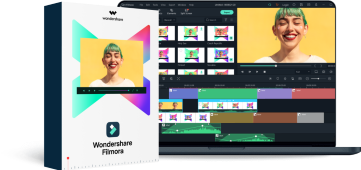
The All-in-One Screen Recorder & Video Editor
- Record desktop screen, voiceover, and webcam simultaneously
- Edit recorded clips quickly with a wide range of professional tools
- Built-in plentiful templates and effects
- Export to MP4, MOV, MKV, GIF and multiple formats
For Win 7 or later (64-bit)
For macOS 10.12 or later

Hosting a Webinar for Free
The world’s largest video sharing platform also features broadcasting options that enable its users to schedule events and thus host webinars free of charge. Previously known as the Google Hangouts on Air, the YouTube Live feature is fairly simple to set up, but before you start your first webinar you will need to choose a landing page and a chatbox. If you already have a website you can simply copy and paste the embed link and create a landing page for your webinar, or you can use landing pages software products such as LeadPages or Unbounce if you don’t have your own online domain. For setting up chatboxes for your webinars we recommend using Chatroll or RumbleTalk platforms, although you’ll have to pay a fee if you choose to chat with your audience using these computer programs. So here’s how you can host your first webinar on YouTube for free.
Step 1. Create a YouTube Event
If you don’t already have an account on YouTube, you’ll have to create one before you can schedule your first live event. After making sure that you are logged in to your YouTube account head over to the Creator Studio, and click on the Live Streaming tab. Select the New Live Event option and proceed to insert the basic information about the event such as the title, date when the event should take place, tags or a short description of the webinar you’re planning.
The Advanced Settings tab will enable you the access to options that will allow you to assign the license and the owner of the webinar. You can also choose the language, set the location or select the category of the event.
Step 2. Copy the Embed Code and Paste it To Your Webinar’s Landing Page
When you adjust all the settings for your upcoming event, you should click on the Share button. This action will grant you access to the video’s embed link, so you can just copy it to your website, or to the landing page you’ve created with the appropriate software.
Step 3. Add the Chatbox to The Webinar’s Landing Page
Communicating with the audience during the webinar is important, and for that reason, embedding the chatbox link on the webinar’s landing page is a crucial step that will allow you to interact with the participants of your webinar. Chatbox platforms for live events such as Chatroll or RumbleTalk offer amazing features, but they cannot be used for free, which means that you’ll have to invest a certain amount of money in order to include a chatbox in your webinar.
Step 4. Publish the Webinar’s Landing Page and Get the URL
Making the event public a week or a few days before it takes place will provide you with enough time to promote it. Include the webinar’s landing page URL in the promotional social media posts and make sure to send out invites for your webinar to your friends and colleagues. Email marketing methods can help you get a larger number of attendees, which is the reason why investing time in the promotion of your webinar can prove to be extremely beneficial.
Step 5. Start your Webinar
Hit the Go Live Now button, when you are ready to start your first webinar and enjoy sharing your skills and knowledge with your audience. Even though YouTube offers a simple way to host webinars for free, it lacks the advanced options that enable you to use the prerecorded footage, keep track of the webinar’s analytics or create virtual whiteboards and polls.
Read More to Get : 10 Best Free Video Hosting Sites for Private/Business Online

Max Wales
Max Wales is a writer and a lover of all things video.
Follow @Max Wales
Max Wales
Mar 27, 2024• Proven solutions
Promoting products, offering educational content or in-depth tutorials on virtually any subject through webinars will enable you to reach new audiences and offer your services on a worldwide market. There are thousands of webinar software products and online platforms, but most of them are quite expensive and they require you to have a considerable amount of experience with the process of setting up and recording webinars.
An alternative solution is available if your budget is tight, but you’d still like to produce a great webinar. We are going to take you through all the steps you’ll need to take if you’d like to host a webinar for free and help you spread the word about the products and services you’re offering.
![]()

The All-in-One Screen Recorder & Video Editor
- Record desktop screen, voiceover, and webcam simultaneously
- Edit recorded clips quickly with a wide range of professional tools
- Built-in plentiful templates and effects
- Export to MP4, MOV, MKV, GIF and multiple formats
For Win 7 or later (64-bit)
For macOS 10.12 or later

Hosting a Webinar for Free
The world’s largest video sharing platform also features broadcasting options that enable its users to schedule events and thus host webinars free of charge. Previously known as the Google Hangouts on Air, the YouTube Live feature is fairly simple to set up, but before you start your first webinar you will need to choose a landing page and a chatbox. If you already have a website you can simply copy and paste the embed link and create a landing page for your webinar, or you can use landing pages software products such as LeadPages or Unbounce if you don’t have your own online domain. For setting up chatboxes for your webinars we recommend using Chatroll or RumbleTalk platforms, although you’ll have to pay a fee if you choose to chat with your audience using these computer programs. So here’s how you can host your first webinar on YouTube for free.
Step 1. Create a YouTube Event
If you don’t already have an account on YouTube, you’ll have to create one before you can schedule your first live event. After making sure that you are logged in to your YouTube account head over to the Creator Studio, and click on the Live Streaming tab. Select the New Live Event option and proceed to insert the basic information about the event such as the title, date when the event should take place, tags or a short description of the webinar you’re planning.
The Advanced Settings tab will enable you the access to options that will allow you to assign the license and the owner of the webinar. You can also choose the language, set the location or select the category of the event.
Step 2. Copy the Embed Code and Paste it To Your Webinar’s Landing Page
When you adjust all the settings for your upcoming event, you should click on the Share button. This action will grant you access to the video’s embed link, so you can just copy it to your website, or to the landing page you’ve created with the appropriate software.
Step 3. Add the Chatbox to The Webinar’s Landing Page
Communicating with the audience during the webinar is important, and for that reason, embedding the chatbox link on the webinar’s landing page is a crucial step that will allow you to interact with the participants of your webinar. Chatbox platforms for live events such as Chatroll or RumbleTalk offer amazing features, but they cannot be used for free, which means that you’ll have to invest a certain amount of money in order to include a chatbox in your webinar.
Step 4. Publish the Webinar’s Landing Page and Get the URL
Making the event public a week or a few days before it takes place will provide you with enough time to promote it. Include the webinar’s landing page URL in the promotional social media posts and make sure to send out invites for your webinar to your friends and colleagues. Email marketing methods can help you get a larger number of attendees, which is the reason why investing time in the promotion of your webinar can prove to be extremely beneficial.
Step 5. Start your Webinar
Hit the Go Live Now button, when you are ready to start your first webinar and enjoy sharing your skills and knowledge with your audience. Even though YouTube offers a simple way to host webinars for free, it lacks the advanced options that enable you to use the prerecorded footage, keep track of the webinar’s analytics or create virtual whiteboards and polls.
Read More to Get : 10 Best Free Video Hosting Sites for Private/Business Online

Max Wales
Max Wales is a writer and a lover of all things video.
Follow @Max Wales
Max Wales
Mar 27, 2024• Proven solutions
Promoting products, offering educational content or in-depth tutorials on virtually any subject through webinars will enable you to reach new audiences and offer your services on a worldwide market. There are thousands of webinar software products and online platforms, but most of them are quite expensive and they require you to have a considerable amount of experience with the process of setting up and recording webinars.
An alternative solution is available if your budget is tight, but you’d still like to produce a great webinar. We are going to take you through all the steps you’ll need to take if you’d like to host a webinar for free and help you spread the word about the products and services you’re offering.
![]()

The All-in-One Screen Recorder & Video Editor
- Record desktop screen, voiceover, and webcam simultaneously
- Edit recorded clips quickly with a wide range of professional tools
- Built-in plentiful templates and effects
- Export to MP4, MOV, MKV, GIF and multiple formats
For Win 7 or later (64-bit)
For macOS 10.12 or later

Hosting a Webinar for Free
The world’s largest video sharing platform also features broadcasting options that enable its users to schedule events and thus host webinars free of charge. Previously known as the Google Hangouts on Air, the YouTube Live feature is fairly simple to set up, but before you start your first webinar you will need to choose a landing page and a chatbox. If you already have a website you can simply copy and paste the embed link and create a landing page for your webinar, or you can use landing pages software products such as LeadPages or Unbounce if you don’t have your own online domain. For setting up chatboxes for your webinars we recommend using Chatroll or RumbleTalk platforms, although you’ll have to pay a fee if you choose to chat with your audience using these computer programs. So here’s how you can host your first webinar on YouTube for free.
Step 1. Create a YouTube Event
If you don’t already have an account on YouTube, you’ll have to create one before you can schedule your first live event. After making sure that you are logged in to your YouTube account head over to the Creator Studio, and click on the Live Streaming tab. Select the New Live Event option and proceed to insert the basic information about the event such as the title, date when the event should take place, tags or a short description of the webinar you’re planning.
The Advanced Settings tab will enable you the access to options that will allow you to assign the license and the owner of the webinar. You can also choose the language, set the location or select the category of the event.
Step 2. Copy the Embed Code and Paste it To Your Webinar’s Landing Page
When you adjust all the settings for your upcoming event, you should click on the Share button. This action will grant you access to the video’s embed link, so you can just copy it to your website, or to the landing page you’ve created with the appropriate software.
Step 3. Add the Chatbox to The Webinar’s Landing Page
Communicating with the audience during the webinar is important, and for that reason, embedding the chatbox link on the webinar’s landing page is a crucial step that will allow you to interact with the participants of your webinar. Chatbox platforms for live events such as Chatroll or RumbleTalk offer amazing features, but they cannot be used for free, which means that you’ll have to invest a certain amount of money in order to include a chatbox in your webinar.
Step 4. Publish the Webinar’s Landing Page and Get the URL
Making the event public a week or a few days before it takes place will provide you with enough time to promote it. Include the webinar’s landing page URL in the promotional social media posts and make sure to send out invites for your webinar to your friends and colleagues. Email marketing methods can help you get a larger number of attendees, which is the reason why investing time in the promotion of your webinar can prove to be extremely beneficial.
Step 5. Start your Webinar
Hit the Go Live Now button, when you are ready to start your first webinar and enjoy sharing your skills and knowledge with your audience. Even though YouTube offers a simple way to host webinars for free, it lacks the advanced options that enable you to use the prerecorded footage, keep track of the webinar’s analytics or create virtual whiteboards and polls.
Read More to Get : 10 Best Free Video Hosting Sites for Private/Business Online

Max Wales
Max Wales is a writer and a lover of all things video.
Follow @Max Wales
Max Wales
Mar 27, 2024• Proven solutions
Promoting products, offering educational content or in-depth tutorials on virtually any subject through webinars will enable you to reach new audiences and offer your services on a worldwide market. There are thousands of webinar software products and online platforms, but most of them are quite expensive and they require you to have a considerable amount of experience with the process of setting up and recording webinars.
An alternative solution is available if your budget is tight, but you’d still like to produce a great webinar. We are going to take you through all the steps you’ll need to take if you’d like to host a webinar for free and help you spread the word about the products and services you’re offering.
![]()

The All-in-One Screen Recorder & Video Editor
- Record desktop screen, voiceover, and webcam simultaneously
- Edit recorded clips quickly with a wide range of professional tools
- Built-in plentiful templates and effects
- Export to MP4, MOV, MKV, GIF and multiple formats
For Win 7 or later (64-bit)
For macOS 10.12 or later

Hosting a Webinar for Free
The world’s largest video sharing platform also features broadcasting options that enable its users to schedule events and thus host webinars free of charge. Previously known as the Google Hangouts on Air, the YouTube Live feature is fairly simple to set up, but before you start your first webinar you will need to choose a landing page and a chatbox. If you already have a website you can simply copy and paste the embed link and create a landing page for your webinar, or you can use landing pages software products such as LeadPages or Unbounce if you don’t have your own online domain. For setting up chatboxes for your webinars we recommend using Chatroll or RumbleTalk platforms, although you’ll have to pay a fee if you choose to chat with your audience using these computer programs. So here’s how you can host your first webinar on YouTube for free.
Step 1. Create a YouTube Event
If you don’t already have an account on YouTube, you’ll have to create one before you can schedule your first live event. After making sure that you are logged in to your YouTube account head over to the Creator Studio, and click on the Live Streaming tab. Select the New Live Event option and proceed to insert the basic information about the event such as the title, date when the event should take place, tags or a short description of the webinar you’re planning.
The Advanced Settings tab will enable you the access to options that will allow you to assign the license and the owner of the webinar. You can also choose the language, set the location or select the category of the event.
Step 2. Copy the Embed Code and Paste it To Your Webinar’s Landing Page
When you adjust all the settings for your upcoming event, you should click on the Share button. This action will grant you access to the video’s embed link, so you can just copy it to your website, or to the landing page you’ve created with the appropriate software.
Step 3. Add the Chatbox to The Webinar’s Landing Page
Communicating with the audience during the webinar is important, and for that reason, embedding the chatbox link on the webinar’s landing page is a crucial step that will allow you to interact with the participants of your webinar. Chatbox platforms for live events such as Chatroll or RumbleTalk offer amazing features, but they cannot be used for free, which means that you’ll have to invest a certain amount of money in order to include a chatbox in your webinar.
Step 4. Publish the Webinar’s Landing Page and Get the URL
Making the event public a week or a few days before it takes place will provide you with enough time to promote it. Include the webinar’s landing page URL in the promotional social media posts and make sure to send out invites for your webinar to your friends and colleagues. Email marketing methods can help you get a larger number of attendees, which is the reason why investing time in the promotion of your webinar can prove to be extremely beneficial.
Step 5. Start your Webinar
Hit the Go Live Now button, when you are ready to start your first webinar and enjoy sharing your skills and knowledge with your audience. Even though YouTube offers a simple way to host webinars for free, it lacks the advanced options that enable you to use the prerecorded footage, keep track of the webinar’s analytics or create virtual whiteboards and polls.
Read More to Get : 10 Best Free Video Hosting Sites for Private/Business Online

Max Wales
Max Wales is a writer and a lover of all things video.
Follow @Max Wales
- Title: [New] Monetizing on YouTube Can You Earn Monthly?
- Author: Kenneth
- Created at : 2024-07-31 23:42:46
- Updated at : 2024-08-01 23:42:46
- Link: https://facebook-video-footage.techidaily.com/new-monetizing-on-youtube-can-you-earn-monthly/
- License: This work is licensed under CC BY-NC-SA 4.0.

 Any DRM Removal for Mac: Remove DRM from Adobe, Kindle, Sony eReader, Kobo, etc, read your ebooks anywhere.
Any DRM Removal for Mac: Remove DRM from Adobe, Kindle, Sony eReader, Kobo, etc, read your ebooks anywhere.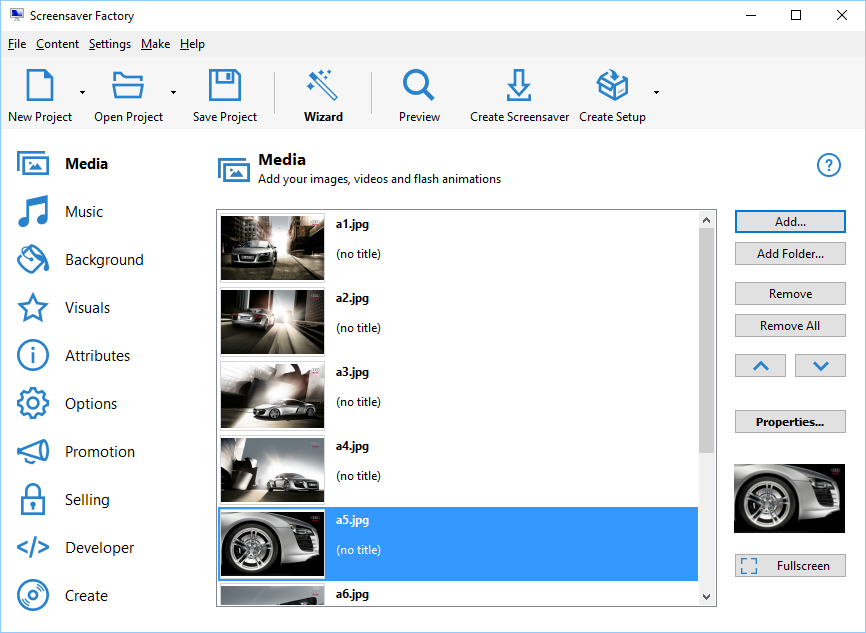 Screensaver Factory, Create stunning professional screensavers within minutes. Create screensavers for yourself, for marketing or unlimited royalty-free commercial distribution. Make screensavers from images, video and swf flash, add background music and smooth sprite and transition effects. Screensaver Factory is very easy to use, and it enables you to make self-installing screensaver files and CDs for easy setup and distribution. Screensaver Factory is the most advanced software of its kind.
Screensaver Factory, Create stunning professional screensavers within minutes. Create screensavers for yourself, for marketing or unlimited royalty-free commercial distribution. Make screensavers from images, video and swf flash, add background music and smooth sprite and transition effects. Screensaver Factory is very easy to use, and it enables you to make self-installing screensaver files and CDs for easy setup and distribution. Screensaver Factory is the most advanced software of its kind.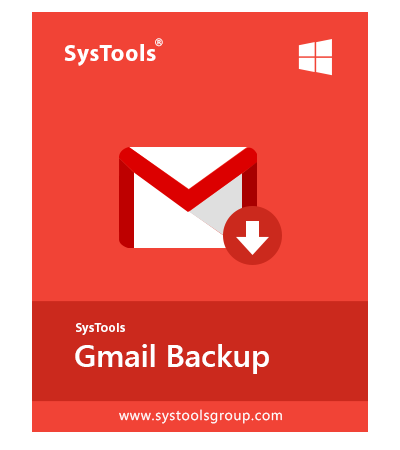
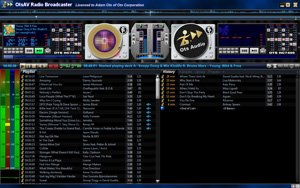 OtsAV Radio Webcaster
OtsAV Radio Webcaster
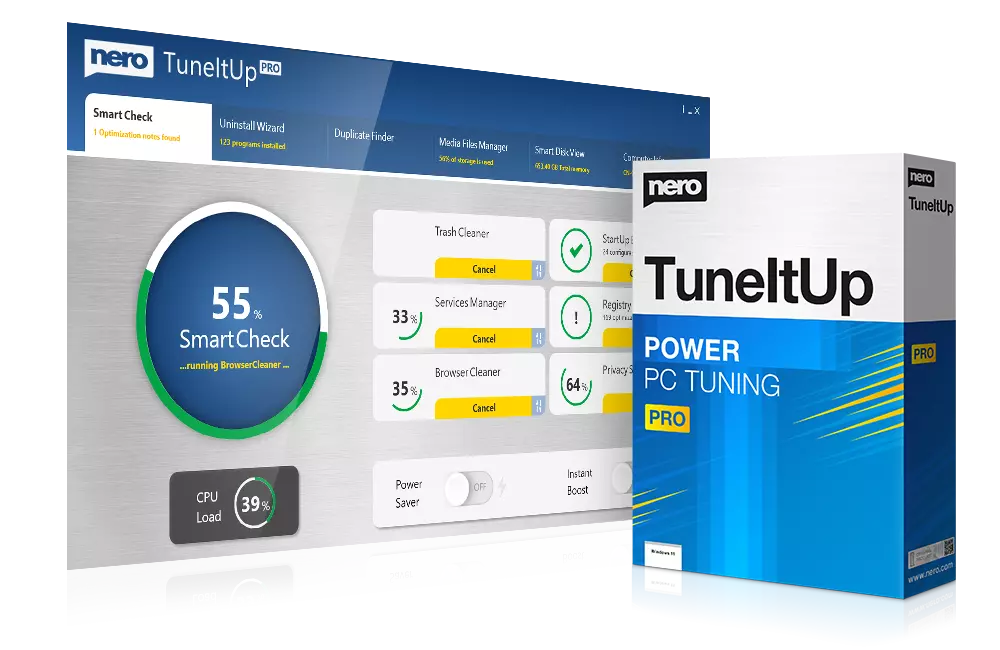 /a>
/a> The Tube Sites Submitter is a fast and efficient tool for anyone who needs to upload videos quickly, easily and automatically to hundreds of tube sites in mere minutes .
The Tube Sites Submitter is a fast and efficient tool for anyone who needs to upload videos quickly, easily and automatically to hundreds of tube sites in mere minutes .